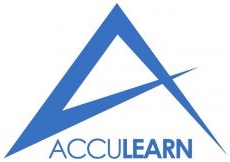Introduction:
This training programme will present a detailed overview of refining process yields, from the crude oil feed to the finished products.
Major refining processes are presented and discussed, including feedstock, feedstock preparation, operating conditions, catalysts, yields, product properties, and economics.
The program is oriented toward the practical aspects of refinery operations as well as the terminology and economics of refining.
The Objectives:
- Act as a primer into the industry of Petroleum Refining to maximise process fluid yields
- Familiarize industry professionals with all processes associated with the processing of petroleum into finished products
- Equip new engineers into the industry, with the basic tools for understanding the complex nature of Refining and its operations
The Content:
Crude Oil Yields Refinery Technology
- Introduction
- Crude Oil Origins & Characteristics
- Crude oil Assay and properties
- Crude oil products
- Product specifications
- Gasoline
- Kerosene/ Jet Fuel
- Fuel Oil/ Diesel Fuels
- Petrochemical Feedstocks
- Refineries Complexity
- Overall refinery flow: Interrelationship of processes
Petroleum Refinery Processes
- Crude Processing
- Desalting
- Atmospheric distillation
- Vacuum distillation
- Heavy Oils Processing – Cocking and Thermal Processes
- Delayed Coking
- Fluid Coking
- Flexicoking
- Visbreaking
Process for Motor Fuel Production
- Fluid catalytic cracking
- Hydrocracking
- Cat Cracking
- Isomerization
- Alkylation
- Hydrotreating
- Catalytic Reforming
Supporting Operations
- Blending for Product Specifications
- Hydrogen production
- Refinery Gas Plants
- Acid Gas Treating
- Sulfur Recovery Plants
Refinery Economics
- Residue Reduction
- Asphalt and Residual Fuel
- Cost Estimation
- Economic Evaluation



